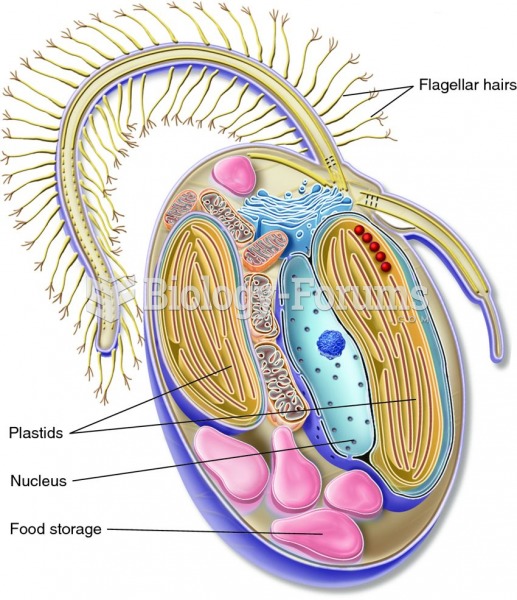|
|
|
Malaria mortality rates are falling. Increased malaria prevention and control measures have greatly improved these rates. Since 2000, malaria mortality rates have fallen globally by 60% among all age groups, and by 65% among children under age 5.
Cancer has been around as long as humankind, but only in the second half of the twentieth century did the number of cancer cases explode.
The toxic levels for lithium carbonate are close to the therapeutic levels. Signs of toxicity include fine hand tremor, polyuria, mild thirst, nausea, general discomfort, diarrhea, vomiting, drowsiness, muscular weakness, lack of coordination, ataxia, giddiness, tinnitus, and blurred vision.
Excessive alcohol use costs the country approximately $235 billion every year.
More than 34,000 trademarked medication names and more than 10,000 generic medication names are in use in the United States.







